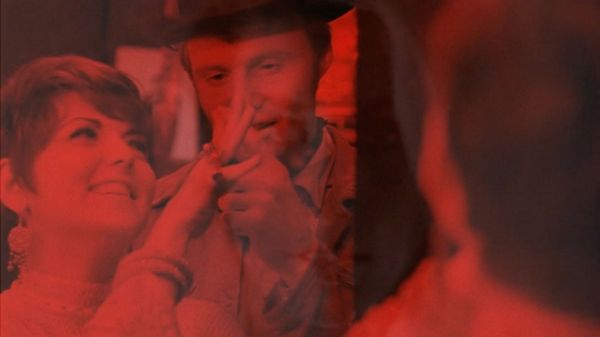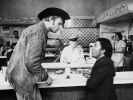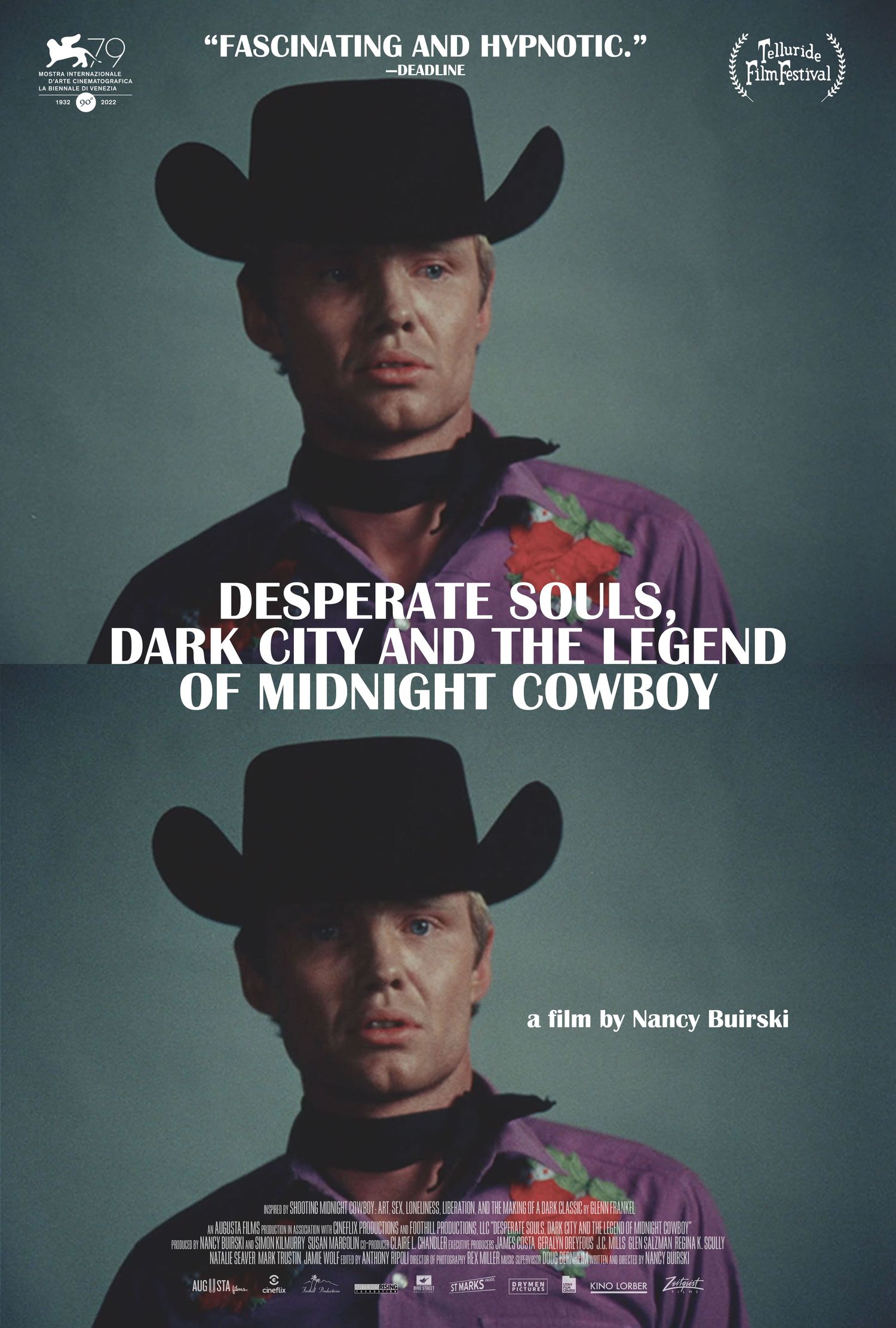Eye For Film >> Movies >> Desperate Souls, Dark City And The Legend Of Midnight Cowboy (2022) Film Review
Desperate Souls, Dark City And The Legend Of Midnight Cowboy
Reviewed by: Anne-Katrin Titze

Footage of late Sixties New York City seamlessly sways into Dustin Hoffman’s Ratso Rizzo in Midnight Cowboy stealing a handful of plum tomatoes and a coconut from a fruit stand with help from his new sidekick Joe Buck (Jon Voight). “These Eyes” sing Guess Who, and Lucy Sante comments that the film “could be an advertisement for anti-glamour and yet by doing this it manages to express the zeitgeist.”
Nancy Buirski’s masterful Desperate Souls, Dark City And The Legend Of Midnight Cowboy, edited with Anthony Ripoli (A Crime on the Bayou, The Rape of Recy Taylor, By Sidney Lumet) is much more than a documentary on John Schlesinger’s multiple Oscar-winning film. Based on James Leo Herlihy’s novel, adapted by Waldo Salt, shot by Adam Holender, with costumes by Ann Roth, Midnight Cowboy features an impressive supporting cast, including Sylvia Miles, Brenda Vaccaro, Jennifer Salt, and Bob Balaban. Desperate Souls, Dark City And The Legend Of Midnight Cowboy’s on-camera interviews were shot by Rex Miller and provide illuminating insight by Lucy Sante, Brian De Palma, Edmund White, Michael Childers, Charles Kaiser, Jim Hoberman, Ian Buruma, Voight, Vaccaro, Balaban, Holender, and Jennifer Salt.

The evocative, wide-ranging, and evermore timely documentary drops us off at the start with Jon Voight telling the story of his encounter with John Schlesinger in full self doubt at the end of shooting Midnight Cowboy. “What have we done?” he remembers the director questioning. To calm him down, the actor called it a masterpiece “that will outlive us.” Voight in present time tears up. His soothing words turned out to be the truth. The film won three Oscars, Best Film, Best Adapted Screenplay, Best Director. Although John Wayne received the Best Actor Oscar (besting Voight) for his performance in Henry Hathaway’s True Grit, the cowboy mythology was on its way to a permanent transformation.
Voight’s screen test features him dressed in black hat and purple shirt, complete with red flower appliqués that resemble wounds, and a shy laugh. There is the voice of Waldo Salt, and his daughter Jennifer commenting on-screen. Vietnam footage functions as a red thread for the era. A harmonica plays. The incredibly intricate combinations of visuals and sounds, the chosen songs and the speaking voices, the film clips and the order they appear in - all form a tapestry of meanings, an emotional homage and a call to awareness for the present moment.
Dustin Hoffman is heard saying that his role in Midnight Cowboy was no stretch for him, that indeed “Ratso was an interior feeling for me.” All he had to find was the walk. Hoffman went on to work again with Schlesinger in Marathon Man, starring opposite Laurence Olivier. Jennifer Salt, who played Crazy Annie in Midnight Cowboy, points out her father’s sweetness and generosity and believes that ultimately he was blacklisted because of this nature. “Anger turned into wisdom,” is one of the many sentences you can return to again and again.
A clip from William Wyler’s 1961 The Children’s Hour, in which Audrey Hepburn and Shirley MacLaine play lovers, follows a discussion of Stonewall and Buirski trusts the audience fully to connect our dots. The first gay kiss in cinema in Schlesinger’s Sunday, Bloody Sunday is juxtaposed with a Mike Wallace TV special at the time on homosexuality, that was, as author, critic, and journalist Charles Kaiser says “full of homophobic drivel.” Jack Smith’s Flaming Creatures, Andy Warhol, the 1966 Oscar for The Sound Of Music, mainstream was about to change. Rosemary’s Baby about to be born.
Schlesinger’s home movies are commented on by his nephew, who describes the happy family life and the bullying at boarding school. “A story about loneliness,” Voight sums up Cowboy. Step by step, the references widen and the documentary opens up into film history and concepts of masculinity. And walks! There is Billy Liar and the plight of limping men and Julie Christie hopping down the street and posing in Capri. On she leaps through the fields from Far From The Madding Crowd (as does Jennifer Salt’s Crazy Annie). The sheep disaster scene and the cold reception of this Schlesinger film (even the director’s parents, flown in for the New York premiere, stayed away from the Plaza afterparty) are followed by the carnage in Vietnam. The American Pie of a changing time.
Roberto Rossellini’s Germany, Year Zero, Vittorio De Sica’s Bicycle Thieves, and Jean-Luc Godard’s À Bout de Souffle prepared the soil, while films such as Elia Kazan’s On The Waterfront and East Of Eden in the US also helped change audience tastes. Escapism was clearly not the trend. The voice of James Leo Herlihy speaks of the “pocket of sweetness” in the strangely shaped apples that are left on the tree by the professional pickers, “that’s where we find humanity.” This is the legend of Midnight Cowboy. This is our job.
“I see by your outfit that you are a cowboy” is a line from The Streets Of Laredo, the song chosen over the end credits. Cowboys and outfits, kind words and life-saving deeds in a violent time make us reflect and associate the in-between.
Reviewed on: 30 Jun 2023














